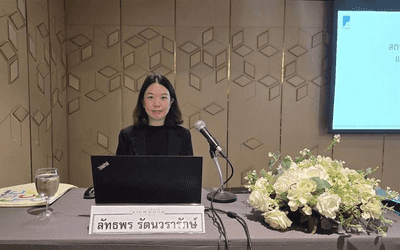The Role of Caregiver Time Preferences, Child Behavioral Problems and Community Risks on Parenting Style
Abstract
This paper investigates the socioeconomic determinants of parenting style in the context of a developing country using early childhood panel data from rural Thailand. Our key findings are that more patient caregivers tend to be more authoritative than authoritarian, caregivers are more likely to be authoritative than authoritarian when they observed more behavioral problems from their children, and caregivers exhibit more authoritarian than authoritative parenting if they perceived the community to be more dangerous. We also find that families with less resources, proxied by wealth, marital status and parental absence, are more likely to be authoritarian.









